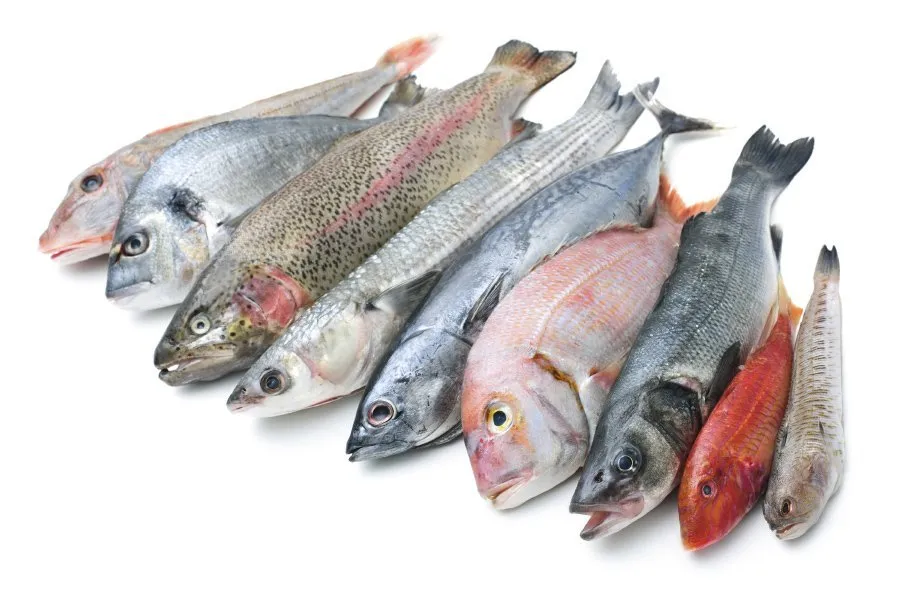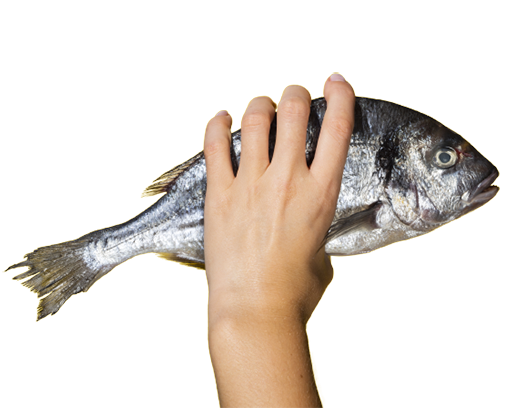On This Page
Fish Allergy – Causes, Symptoms and Ayurvedic Treatment
उपशेते यदौचित्यादोक सात्म्यं तदुच्यते ||४९||
(च.सू.६/४९)
Allergies to shellfish and fish are more common in adults and adolescents than in young children. A recent study estimated that one in every 100 people has a seafood allergy. The types of seafood that can cause allergies include scaly fish and shellfish, including molluscs (such as oysters, mussels and squid) and crustaceans (such as prawns, crayfish and yabbies). Allergic reactions to fish are typically mild, but all reactions can be unpredictable. Although rare, severe and potentially life-threatening reactions can also occur.
In Ayurveda, there is an important disease preventive concept described by all the samhitas in Ayurveda known as “satmya”. According to this concept diet or medicine which suits to one person may not be suits to another person & this is the reason diet may vary according to desha (places of living). Therefore, if any food or medicine which is non-conducive is taken, it causes alternate effects on body. Allergies comes under this concept and therefore, Fish allergy causes allergy in individuals who are ‘asatmya’ to that and there will be an immune reaction.
Causes of Fish Allergy
For all allergies, the immune system reacts to specific allergy triggers (allergens). Our immune system produces antibodies that detect the allergen and cause inflammatory reactions and the release of a chemical called histamine. Histamine causes hives, hay fever and other allergic symptoms. Allergic reactions to fish are mainly caused by a specific kind of protein called parvalbumin.
Symptoms of Fish Allergy
As with other food allergies, the symptoms of a fish allergy may range from mild to severe. They include:
- Hives or a skin rash
- Nausea, stomach cramps, indigestion, vomiting and/or diarrhea
- Stuffy or runny nose and/or sneezing
- Headaches
- Asthma
Ayurvedic References of Fish Allergy
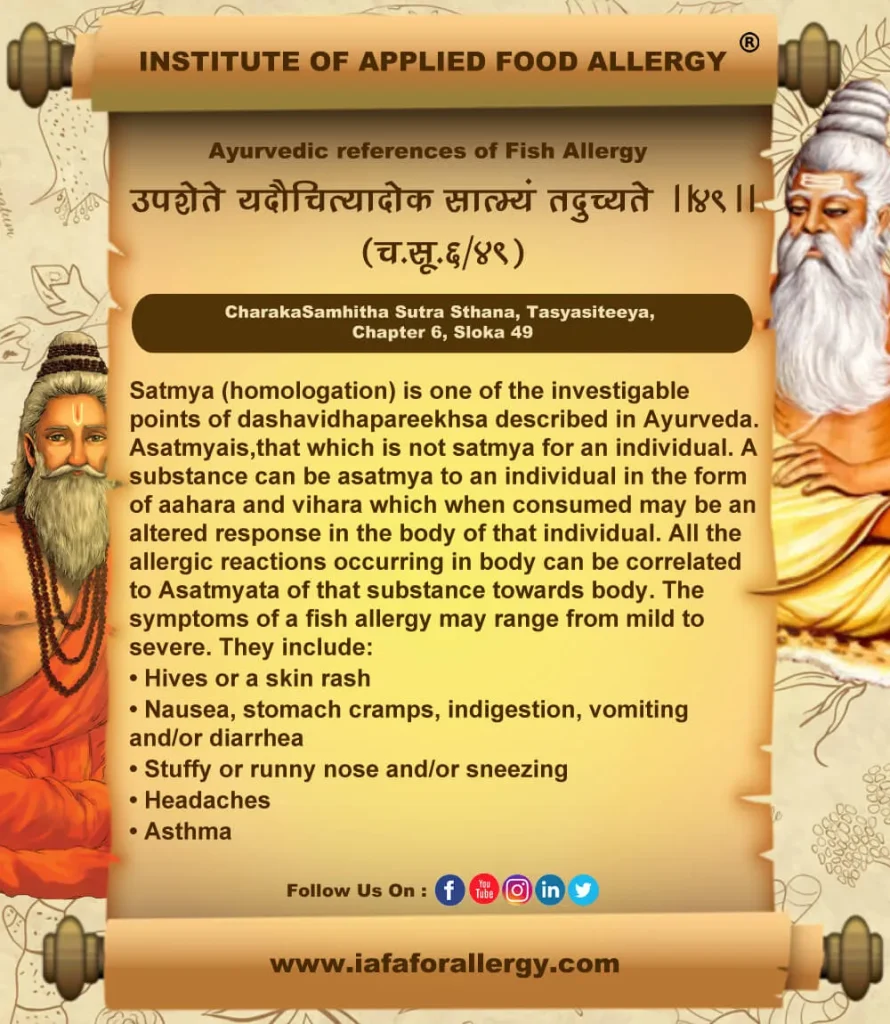

“Dr. Gupta’s IAFA provides better care and fruitful treatment for the treatment of Fish allergy. Institute of Applied Food Allergy® provides the best care and service for all allergies through Ayurveda”.
Your health. Our mission!!! Reach Dr. Gupta’s IAFA for all your worries about your health.
– Dr. Sahil Gupta (B.A.M.S., M.H.A.)
Ayurvedic Allergy Specialist
CEO & Founder of IAFA®
At last, Easier Fish Allergy Management

Trusted by
More than 90,000 Patients

Convenient
at-Home Treatments

9.2 / 10
Customer Satisfaction Score
Ayurvedic Treatment for Fish Allergy
Asatmya is a term which means intolerance. This tolerance or intolerance can be towards any medicine, food, weather, or any habits. Ayurveda believes that Asatmya is a result of weak or imbalanced Agni (digestive fire). A weak Agni means there is Ama (toxin) formation in the body Treatment involves Shamana chikitsa (internal medicines), Shodhana chikitsa (Panchakarma therapy), life style modifications and very strict diet regimen.
Internal Medicines for Fish Allergy
- Guluchyadi Kashaya
- Drakshadi Kashaya
- Hingvadi Vati
- Kutajaghana Vati
- Chitrakadi Vati
- Shivakshara Churna
- Trikatu Churna
- Dadimadi Ghritham
- Guduchi Satva
- Pravala Panchamrita
Purificatory Therapies
- Vamana (Emesis therapy)
- Virechna (Purgation therapy)
- Asthapana Vasti (Medicated enema)
Single Herbs Used in Fish Allergy
- Pippalimoola (Piper longum)
- Chavya (Piper chaba)
- Sunthi (Zingiber officinale)
- Amlavetasa (Garcinia pedunculata)
- Pippali (Piper longum)
- Chitraka (Plumbago zeylanica)
- Maricha (Piper nigrum)
- Haridra (Curcuma longa)
- Kutaja (Holarrhena Antidysenterica)
- Bilwa (Aegle marmelos)
- Musta (Cyperus rotundus)
Diet Management in Fish Allergy
Pathya (Do’s)
- Avoid all fish, as well as products that contain them and products that have undergone processing in the same facilities as these foods.
- Recognizing allergy symptoms and taking prompt action if they develop.
Apathya (Don’ts)
- Avoid these and look for them on food labels:
- Fish gelatin, made from the skin and bones of fish
- Fish oil
- Fish sticks (some people make the mistake of thinking these don’t contain real fish)
Yoga Therapy for Fish Allergy
Yogasanas and pranayama are very effective in Fish Allergy.
Postures include:-
- Matsyasana
- Paschitmoasana
- Sarvangasana
- Pavanamukthasana
- Sirsasana
- Bhujangasana
Pranayama include:-
- Kapalbhati
- Nadishodhana Pranayama
- Bhastrika Pranayama

Frequently Asked Questions
Question: What is Fish Allergy?
Answer: A fish allergy is a type of food allergy in which the person is allergic to some types of fish but not others. Although most allergic reactions to fish happen when someone eats fish, sometimes people can react to touching fish or breathing in vapors from cooking fish.
Question: What are the Causes of Fish Allergy?
Answer: Fish allergy is a pathophysiological, IgE-mediated immune response to specific fish proteins.
Question: What is the Ayurveda Treatment of Fish Allergy?
Answer: If patient is healthy then sodhanchikitsa (purificatory) should be done with vamana, virechan and then shaman (palliative) chikitsa should be done with advised diet and medicines.
Dr. Gupta’s IAFA provides better care and fruitful treatment for the treatment of Fish allergy.
Your health. Our mission!!! Reach Dr. Gupta’s IAFA for all your worries about your health.
Was this Page Helpful?
So IAFA Root-Cause Treatment of Your Fish Allergy is Just 3 Steps Away!

01. Connect With Us
Share your history of illness or Book your appointment

02. Consult With Us
Dr. Gupta a certified Ayurvedic Allergist Consultant

03. Root Cause Treatment
Get an accurate diagnosis, medicines, diet & lifestyle change
Fish Allergy – Case Studies
Real Case Studies of Successfully Treated Patients from All Around the World by IAFA Ayurveda®

5-Year-Old Shih Apso Dog Recovered from Canine Peripheral Neuropathy – A Case Study
This case study presents a 5-year-old Shih Tzu-Lhasa Apso crossbreed dog (pet)…

9 Year Old Female Patient Recovered from Chronic Allergic Bronchitis – A Case Study
This case study presents a 9-year-old female patient who has successfully recovered…

12-Year-Old Child Recovered from Sun Allergy and Polymorphous Light Eruption (PMLE) – A Case Study
This is a case study of a 12-year-old child who has successfully…

40-Year-Old Female Patient Recovered from Dyshidrotic Eczema and Onychomycosis – A Case Study
This case study highlights the successful recovery of a 40-year-old female patient…
Read More Articles
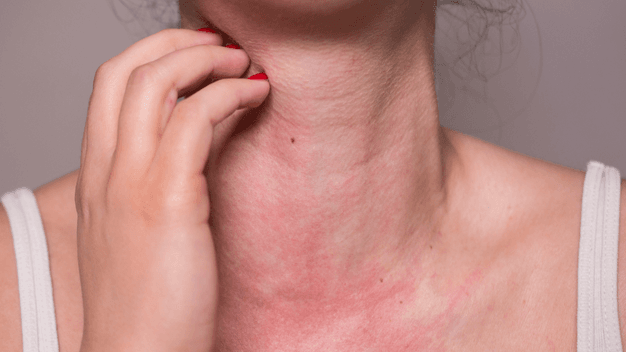
Polymorphous Light Eruption (PMLE)
Discover Ayurvedic treatment for Polymorphous Light Eruption (PMLE). Learn about its causes,…
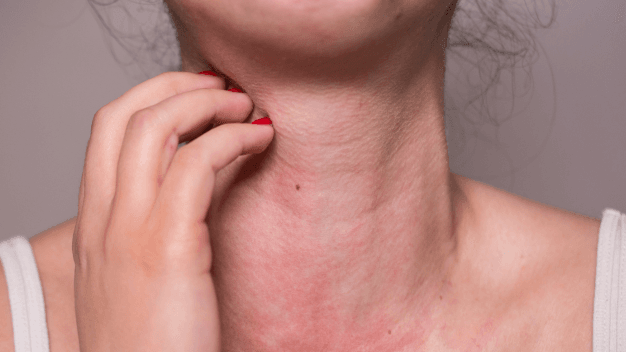
Mast Cell Diseases
Discover Ayurvedic treatment for Mast Cell Diseases, including types, causes, symptoms, and…

High Immunoglobulin-E (IgE) Levels
Discover Ayurvedic treatment for high Immunoglobulin-E (IgE) levels. Learn about the causes,…

